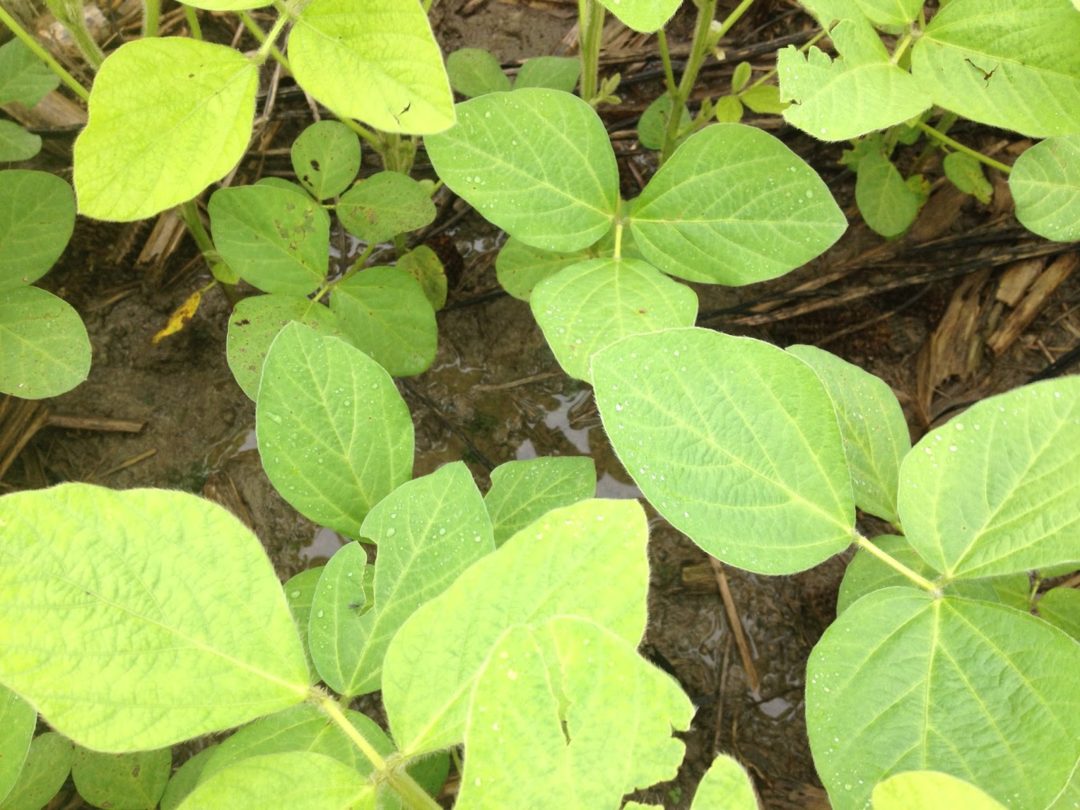Source: University of Kentucky Extension
By Chad Lee, Extension Professor and Agronomist
Numerous fields of soybeans appear yellow or bright green right now. The symptoms mimic nitrogen (N) deficiency, but the plants are really starving for air in the roots and sun on the leaves. Everyone is thinking about applying some N to help make the plants greener. But what these plants really need is for sunshine to help partially dry the soils.
Rains have saturated our soils and pushed air out of the root zone. That lack of oxygen can lead to slowed activity of the Bradyrhizobium japonicum which leads to reduced N fixation and uptake. Extended periods of saturated soils will kill some of the roots and some of the Bradyrhizobium japonicum. Both will rebound quickly once sunshine and air return to the system.
Most of the soybeans in Kentucky are flowering, so the rainfall we get now helps to build the size of plant and structures to produce pods and seeds. These yellow plants will likely lose some flowers, but even a healthy soybean plant will lose about half of its flowers. If the sun comes out soon, these plants have plenty of time to build more flowers and pods.
Rainfall and water stress during soybean seed fill is our most critical period for yield determination. The current saturated conditions likely will have very little impact on final yields. (All of these comments are based on the premise that the plants survive. Soybeans completely flooded and choking out is a completely different scenario.) While we need some sunshine now to help the plants recover, we need to continue getting timely rains to help this crop yield well.
Once the fields dry out enough to allow spray equipment across without causing compaction, the soybeans are probably a couple days away from becoming green again. A dose of foliar N may get one extra day of green plants, but probably will not contribute much to the overall yield of the plants.
These weather conditions are setting up quite well for disease infestations later. This is a season where good field scouting is absolutely necessary to make good decisions on disease management. Every farmer already knows that agriculture is a constant struggle between too much water and too little water. This May, June and early July are a vivid reminder.






